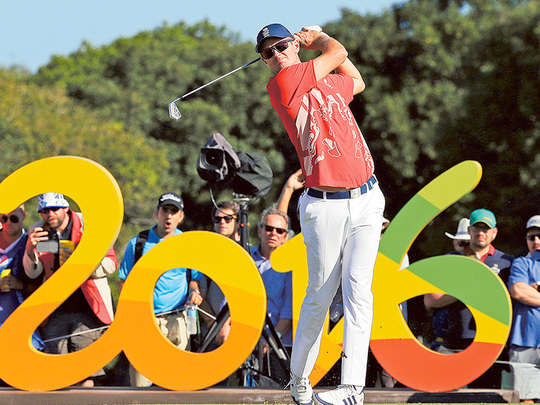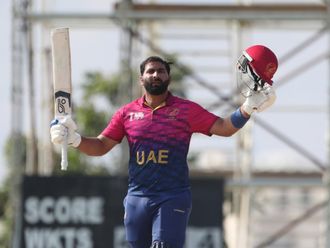
Dubai: It may appear strange that for someone who does not play the game of golf, I am writing this article to celebrate the sport’s distinguished position in the Olympic Games.
But having said that, you don’t have to know how to play the guitar or piano for that matter to enjoy music, which I also happen to do. Big time.
But that’s another story, we’re talking golf here.
I was one of the happiest non-golfers when, after languishing for over 100 years in the wilderness, golf once more proudly became an Olympic sport at the 2016 Summer Games in Rio.
I saluted the hard-as-nails International Olympic Committee (IOC) for taking the right decision to reinstate golf into the world’s greatest sporting spectacle.
I cheered when Britain’s Justin Rose and South Korean Inbee Park made history as golf’s first gold medallists since Canadian George Lyon triumphed in 1904, only the second year that the sport was ever played at the Olympics.
But did the IOC do golf any favours by welcoming the sport back into the Olympic fold?
I don’t think so, because thanks to its rapid expansion and globalization, golf earned its place among the elite sport on the planet and more importantly - it offered the perfect overall global package that Games organisers look for in any sport.
As we all know, golf is much more than a sport, it’s a way of life.
And now, for only the fourth time in sporting history 60 golfers, both men and women, will be chasing Olympic gold, something most sportsmen consider more precious than winning one of golf’s Majors or the prize money that it offers in the sport.
Kasumigaseki Country Club, which was established in 1929, appears to be an ideal choice to host this prestigious tournament - having established itself as the highly regarded home for the game in a golf-loving country.
While it is essentially a flat course that is spread over 7,455 yards, the par-71 is regarded as being extremely challenging as it boasts 129 bunkers among other obstacles that will for sure test the skills of the game’s elite.
Golf has come a long way since it was first played in 1564 when Shakespeare, who was himself an enthusiastic golfer and single handicap player, was born.
Players like the great dramatist had a deep passion for the game, a passion that even today burns in every golfer’s heart, professional or amateur.
And in mine as well.
I never had the courage to commit to playing golf although I did give it a go on the driving range, where on one occasion I actually hit a ball as far as 100 yards. Which I thought was not a bad effort at all, until I was told off that at best it was a moderate attempt.
But it was a start, at least that’s what I thought. But perhaps that comment may put me off because I never visited the driving range as well, just as my dreams of becoming a rock star were effectively quashed by my disciplinarian father. And wisely so, because I never did have the looks of a Mick Jagger or a David Bowie.
But here I go again, digressing.
So, getting back to the Olympics, what can we expect besides the fact that powerful players from the United States and Korea are likely to dominate the medal hunt for men and women.
With a maximum number of four players representing their country, the competition promises to be intense and exhilarating.
And needless to say, I will be among the 60 million golf enthusiasts who will be keeping an eye on the leaderboard at the Kasumigaseki Country Club when the event tees off on August 29.









